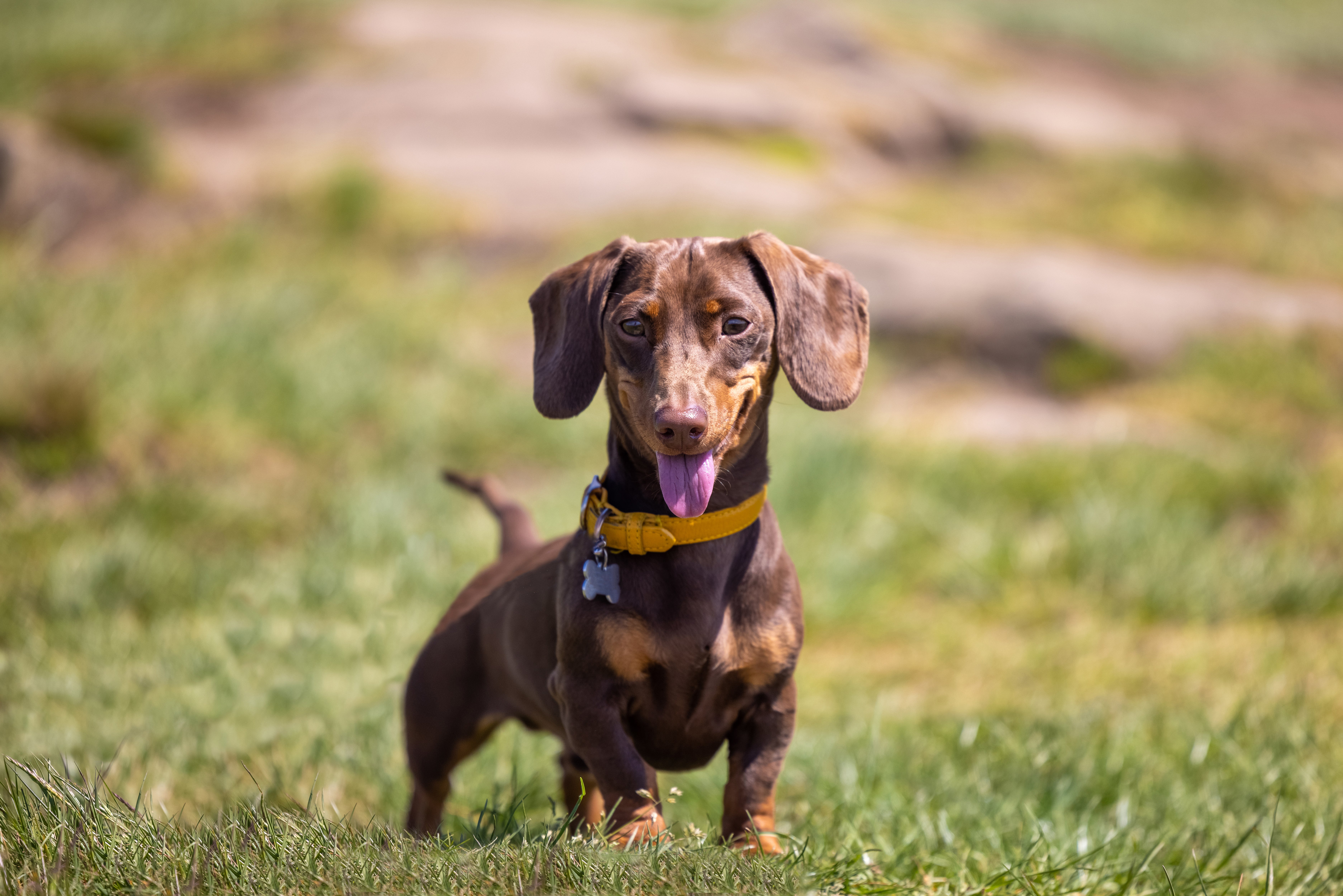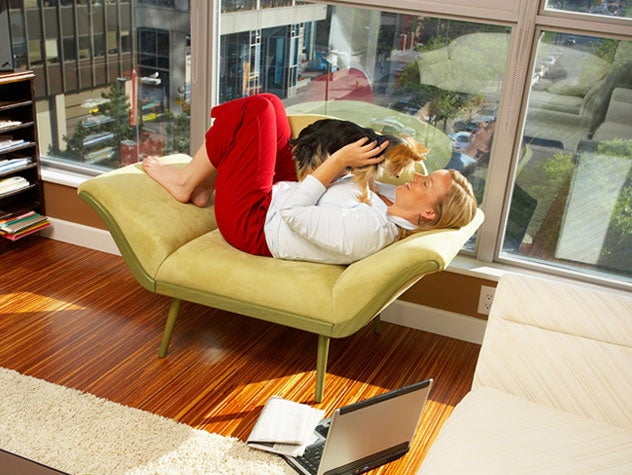Miniature Dachshund
The Miniature Smooth-Haired Dachshund is instantly recognizable: Small, long-backed, short-legged, spunky, and befitting of their “hot dog” nickname. Despite their diminutive size, Miniature Dachshunds are muscular and powerful, boasting a deep, broad chest and well-developed forelegs. Their short, dense, and smooth coats come in a delightful array of colors, adding to their charming appearance.
Breed characteristics carousel
Learn More
Need to Know
- Dog suitable for owners with some experience
- Extra training required
- Need to be aware of potential health issues
- Enjoys active walks
- Small dog
- Minimal drool
- Requires regular grooming
- Chatty and vocal dog
- Barks and alerts to visitors/anything unusual
- Could have issues with unknown dogs but gets along with known dogs
- May need additional training to live with other pets
- May need additional supervision to live with children
- Needs a small yard or can happily live in the city
- Can be left alone occasionally with training
- AKC Registered Breed

Personality
The pint-sized Miniature Dachshund dog is bold and curious, always ready for an adventure. They enjoy chasing, digging, and engaging in scent-related games or activities. While they can be independent, they love to join in on family activities whenever possible. Dachshunds are generally good with children in their own families, though some may need careful introductions to unfamiliar children.
They tend to be reserved with strangers, and some are prone to barking. The long-haired variety is often quieter and less terrier-like, while the wire-haired variety tends to be more outgoing. Some miniatures may be more timid.
Definitive evidence of the Dachshund as a breed appears in the sixteenth century, with references to a “low crooked-legged” dog called the Little Burrow Dog, Dacksel, or Badger Dog. The name “Dachshund” came later and simply means badger (dachs) dog (hund) in German.
The original smooth-coated Dachshunds were a mix of the Bracke and a Pinscher. Before 1900, very small Dachshunds were used to protect homes and farms from rodents. By 1910, stricter breeding standards were introduced, with specific breeds enhancing each coat type: Miniature Pinschers for smooth coats, Papillons for long coats, and Miniature Schnauzers for wire coats. Over time, the Dachshund has become a beloved family pet and remains one of the most popular dogs in America.
The Miniature Dachshund dog breed is a little less robust than their full-size counterparts. This makes them easier to pick up, but also easier to trip over, meaning small children might not be the best fit for such a tiny dog. Owners will need to be reasonably fit and active, and interested in some fun training. This breed doesn’t cope well with stairs and is best suited to single-story living or an adaptable house with plenty of ramps to protect their delicate bodies.
Although active, the Dachshund’s exercise requirements can be met with moderate walks on a leash and games in the yard. They are adaptable to city life or apartment living but are energetic at heart and enjoy time outside.
The Miniature Dachshund dog doesn’t need much space but needs access to the outdoors for exercise and potty time. They would enjoy a small yard but can get by without one. Their delicate backs make them injury-prone. They do better in a bungalow or single-story home as stairs can be an issue.
There are three types of mini Dachshunds and their grooming needs vary depending on the coat. The smooth coat variety requires minimal grooming, while the long coat requires brushing or combing once or twice weekly and occasional trimming of stray hairs. The wire coat requires brushing or combing about once a week, with occasional trimming of stray hairs and stripping to remove dead hair twice a year.
Dachshunds are not the quickest learners but should be taught basic life skills including how to walk on a harness and leash. Socialization with people and other animals is important as they can be reserved to the point of being unfriendly to strangers.
The Miniature Dachshund isn't the best fit for families with young children. These little spark plugs are delicate despite their bold personalities and are prone to injury, can be a bit short-tempered, and don't enjoy rough-and-tumble play. They generally bond closely to one person rather than to a family.
The cost of a Miniature Dachshund from a breeder is significantly more than the cost of adopting one from a local shelter or rescue. The adoption fee usually covers additional items such as spaying or neutering, vaccines, and microchipping.

Learn more about feeding and caring for your Miniature Dachshund on Purina.
Did You Know?
- There is a famous quote by journalist H. L. Mencken about the Dachshund breed. He said that the Dachshund is “half a dog high and a dog and a half long.”
- In addition to being called hot dogs, weiner dogs, and sausage dogs, Dachshunds are called Doxies and Dashies.
- Dachshunds can bark excessively, as they were originally trained to do so.

